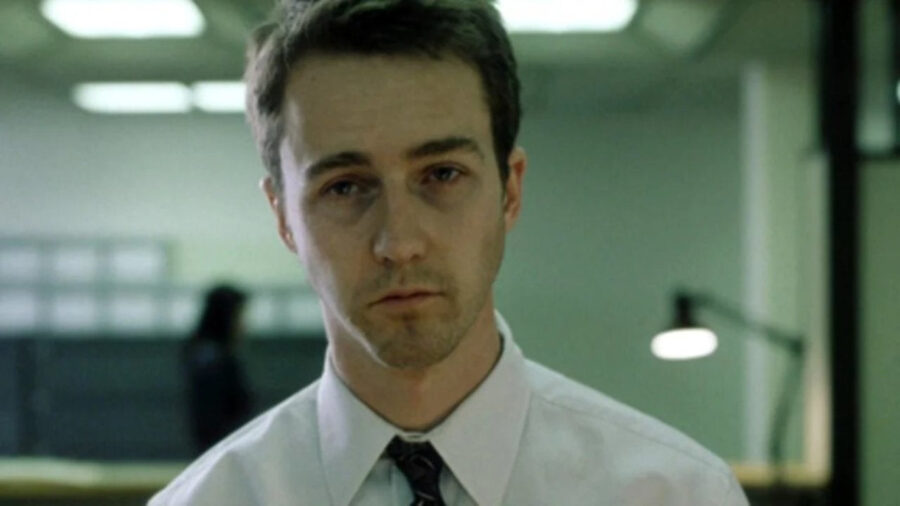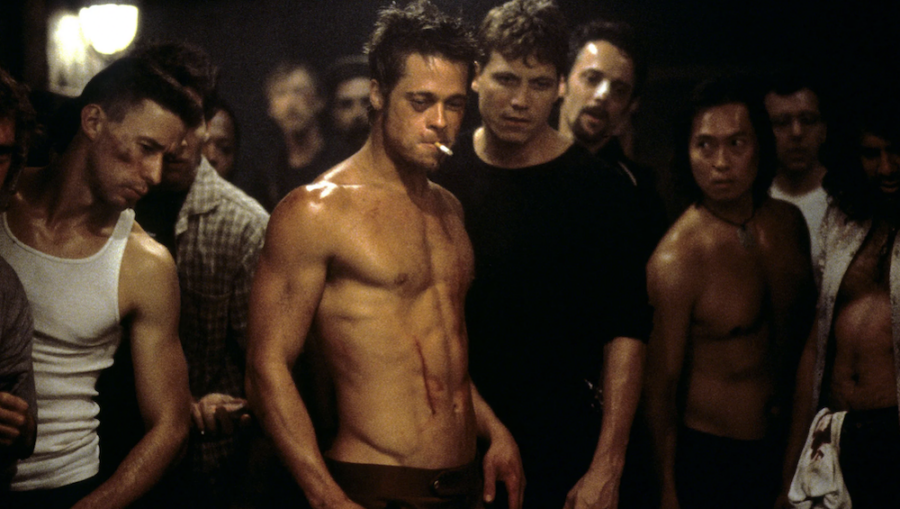David Fincher Responds To Fight Club Becoming Beloved By Bad People

Artists have long been plagued with issues regarding the interpretation of their works as tacit approval of the behavior depicted on screen. For David Fincher, no project is more exemplary of this problem than Fight Club. According to a write-up in Variety, Fincher has struggled with fringe groups of violent and antisocial young men idolizing characters such as Tyler Durden, with the auteur filmmaker plainly saying “It’s impossible for me to imagine that people don’t understand that Tyler Durden is a negative influence… I don’t know how to respond and I don’t know how to help them.”
David Fincher responds to fringe groups idolizing Fight Club‘s Tyler Durden.
David Fincher’s 1999 drama thriller was a massive critical success, which millions of viewers continue to watch to this day. Unfortunately, the iconic film, which stars Edward Norton and Brad Pitt, has become something of a touchstone for the political far-right. Incels and violent fascists in particular seem to truly idolize Fight Club, with a particular focus on Brad Pitt’s maladjusted character, Tyler Durden.
These fringe groups, which seem to be on the rise in recent years as a number of nations worldwide have experienced significant political upheaval, are known to attach themselves to art, sullying the reputation of the works by inculcating themselves with the film’s messaging. So-called “incels” or involuntary celibates, have especially drawn ire to a litany of artistic works, and are often categorized by violent displays of racism, homophobia, and misogyny.
Like Fight Club, Caine’s 1964 breakout film Zulu has become a beloved work for the far right, prompting some groups to demand the film be banned.
According to David Fincher, and all filmgoers capable of understanding basic themes and cinematic concepts, Fight Club is a stern admonishment of these core values.

While David Fincher seems to have done everything that he can to distance himself from these fringe groups in recent years, the community of filmgoers seem to be completely missing the point of the film, intentionally or otherwise. Fight Club has even become the subject of a great deal of online memes and discourse since the rise of the incel movement, serving as a prime example of art being misinterpreted by willfully ignorant audiences who seek to identify with the film’s antagonist.
While this obviously does not mean that every fan of Fight Club is a disenfranchised incel, it has inadvertently placed an asterisk on the film by association, an association which Fincher vehemently rejects.
“It’s impossible for me to imagine that people don’t understand that Tyler Durden is a negative influence… I don’t know how to respond and I don’t know how to help them.”
–Fight Club director David Fincher on fringe groups idealizing Tyler Durden
According to the Gone Girl filmmaker, these fringe groups could just as easily project their backwards worldview onto the likes of a Picasso painting, as the seemingly media-illiterate bunch are overwhelmingly determined to eschew all nuance in the face of artistic expression. David Fincher is far from the first artist to be faced with these problems, as other filmmakers, such as Michael Caine, have made numerous attempts to rebuke the adoration of problematic viewers misreading their works.
Like Fight Club, Caine’s 1964 breakout film Zulu has become a beloved work for the far right, prompting some groups to demand the film be banned.
Though David Fincher has gone on to helm a number of massive critical and box office smashes in the decades since Fight Club premiered, the filmmaker still remains embroiled in controversy regarding the film.
Just last year the movie made its way to China, with an abridged alternate ending which the filmmaker refers to as slapping a bandaid on the final act. With the world in a completely different place today than it was in 1999, it’s shocking that Fight Club remains so eerily prescient to audiences across the world.












